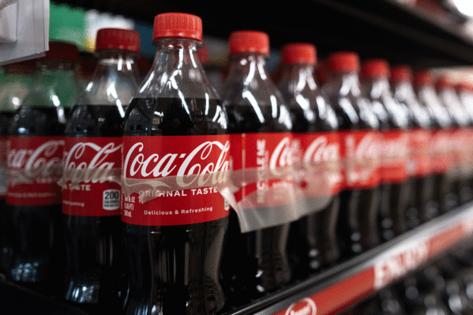Matthew Yglesias: Why MAGA wants to make Mexican Coke in the US
Published in Op Eds
Coca-Cola is launching a new product in the U.S. this fall featuring cane sugar rather than high fructose corn syrup, and at least one restaurant chain is planning to offer sugar Coke as soon as next week. This news prompted Health and Human Services Secretary Robert F. Kennedy Jr. to post his reaction online: “MAHA is winning.”
This new Coke is highly unlikely to Make America Healthy Again. But it raises the question of how U.S. soda manufacturers came to rely so heavily on the corn-based sweetener in the first place. The answer is protectionism, one of the main items on the Make America Great Again agenda. As it turns out, when you combine MAHA and MAGA, what you get is … Mexican Coke.
Because sugar-based Coca-Cola is already available in the U.S. — it’s just imported from Mexico and known colloquially as “Mexican Coke.” The company does that because the U.S. has extensive trade protections for American sugar growers, which pushes the domestic price of sugar in the U.S. far above the world level. That means that it makes more economic sense to use corn-based sweeteners in U.S.-based soda production while importing sugar soda from Mexico.
Kennedy believes the ubiquity of high fructose corn syrup in the American diet has a significant deleterious impact on Americans’ health. My more informed colleagues can adjudicate that claim, which I doubt. My concern is the distortionary impact of America’s sugar policy on global trade flows and the allocation of natural resources.
Turning corn into sugar is an inefficient process compared to turning sugar cane into sugar, so using HFCS is significantly more land-intensive than using regular sugar. Blocking sugar cane to promote HFCS therefore promotes global deforestation, on the margin, and raises the domestic price of food and land for Americans. In the grand scheme of things these are minor impacts — meat and especially cattle have by far the biggest land impacts of any economic sector — but they’re something.
The cornerstone of U.S. sugar policy is a system of tariff rate quotas. Under the so-called TRQ system, a limited amount of sugar can be imported to the U.S. and lightly taxed. These quotas are set on both a national basis and for dozens of sugar-producing countries. Any sugar above the quota level is taxed at a rate of at least 15 cents per pound — and with the global price of sugar at only about 16 cents per pound, that’s a huge tax.
These TRQs, meanwhile, are only one part of a larger plan whose objective is to prevent domestic sugar prices from getting too low while providing guaranteed profits to domestic sugar farmers. Another aspect of it, for example, is the U.S. Department of Agriculture’s practice of giving guaranteed discounted loans to sugar producers, with sugar itself offered up as collateral. The USDA is then instructed to manage an Overall Allotment Quantity (OAQ) — basically a national sugar production target — designed to ensure that the collateral is good for the loans and avoid credit losses.
The upshot of all this is a windfall for a tiny number of American sugar farmers; a modest boost for America’s corn farmers; higher prices for American consumers; and economic losses for America’s trading partners in Latin America.
This set of policies dates to the 1980s and has nothing in particular to do with President Donald Trump. But it amounts to a real-world road test of some MAGAnomics principles, and underscores how self-defeating protectionism can be. It’s not just that American sugar policy raises costs and thus lowers living standards for the majority of people. It’s that it undermines U.S. manufacturing, because sugar is used as an input for other processes.
Yes, in a naive sense, blocking sugar imports would seem to improve the U.S. balance of trade. But the actual impact is unknowable. If tropical sugar-producing countries were allowed to export more sugar, they would have higher incomes. Those incomes would be spent on things, likely including the kinds of things that the U.S. exports — airplanes, turbines, medical devices, beef, and whatever else. There would be real losses for some Americans, specifically the ones who own sugar plantations, but it’s fundamentally a negative sum bargain that hurts most people on both sides of the trading relationship.
Meanwhile, bad as all this sugar protectionism is as overall economic policy, the relationship to public health is borderline nonexistent.
Coke simply manufacturing a cane sugar soda to give Trump a propaganda win, for starters, isn’t going to change consumer behavior. Sodas sweetened with cane sugar are already widely available in the U.S., not only from competing brands but from Coca-Cola itself. They are less popular because they are more expensive.
Even if consumers did switch, there is no real evidence that cane sugar is healthier than HFCS. Mexico, for example, where non-HFCS sodas are mainstream, has recently surpassed the U.S. in its obesity rate. The reason HFCS is bad for you is not that it’s worse for you than cane sugar — it’s that the development of HFCS technology has made it cheaper to add sweetener to all kinds of things. And while most people like the sweet stuff, all this sweetened hyper-palatable food and drink encourages overconsumption.
A serious conversation about what, if anything, to do about this would be welcome. But it solves nothing to pile scientifically illiterate policies onto economically illiterate ones.
____
This column reflects the personal views of the author and does not necessarily reflect the opinion of the editorial board or Bloomberg LP and its owners.
Matthew Yglesias is a columnist for Bloomberg Opinion. A co-founder of and former columnist for Vox, he writes the Slow Boring blog and newsletter. He is author of “One Billion Americans.”
©2025 Bloomberg L.P. Visit bloomberg.com/opinion. Distributed by Tribune Content Agency, LLC.

























































Comments